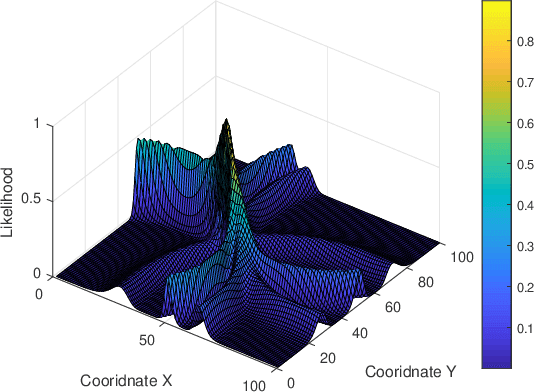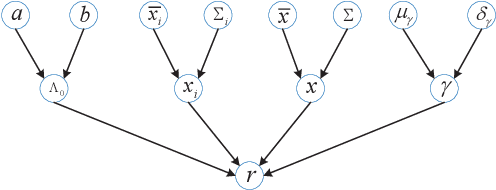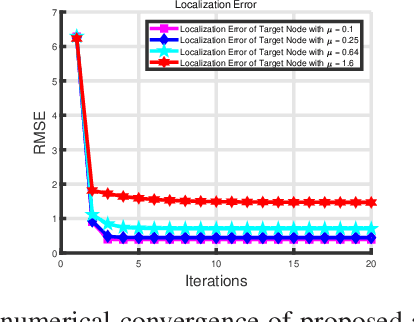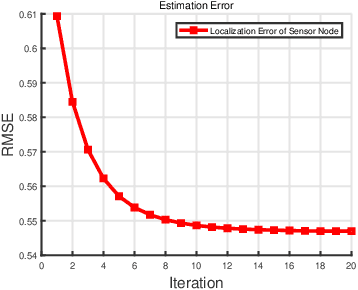Weiqiang Tan
Variational Bayesian Learning based Joint Localization and Channel Estimation with Distance-dependent Noise
Mar 07, 2024



Abstract:In the Industrial Internet of Things (IIoTs) and Ocean of Things (OoTs), the advent of massive intelligent services has imposed stringent requirements on both communication and localization, particularly emphasizing precise localization and channel information. This paper focuses on the challenge of jointly optimizing localization and communication in IoT networks. Departing from the conventional independent noise model used in localization and channel estimation problems, we consider a more realistic model incorporating distance-dependent noise variance, as revealed in recent theoretical analyses and experimental results. The distance-dependent noise introduces unknown noise power and a complex noise model, resulting in an exceptionally challenging non-convex and nonlinear optimization problem. In this study, we address a joint localization and channel estimation problem encompassing distance-dependent noise, unknown channel parameters, and uncertainties in sensor node locations. To surmount the intractable nonlinear and non-convex objective function inherent in the problem, we introduce a variational Bayesian learning-based framework. This framework enables the joint optimization of localization and channel parameters by leveraging an effective approximation to the true posterior distribution. Furthermore, the proposed joint learning algorithm provides an iterative closed-form solution and exhibits superior performance in terms of computational complexity compared to existing algorithms. Computer simulation results demonstrate that the proposed algorithm approaches the performance of the Bayesian Cramer-Rao bound (BCRB), achieves localization performance comparable to the ML-GMP algorithm, and outperforms the other two comparison algorithms.
 Add to Chrome
Add to Chrome Add to Firefox
Add to Firefox Add to Edge
Add to Edge